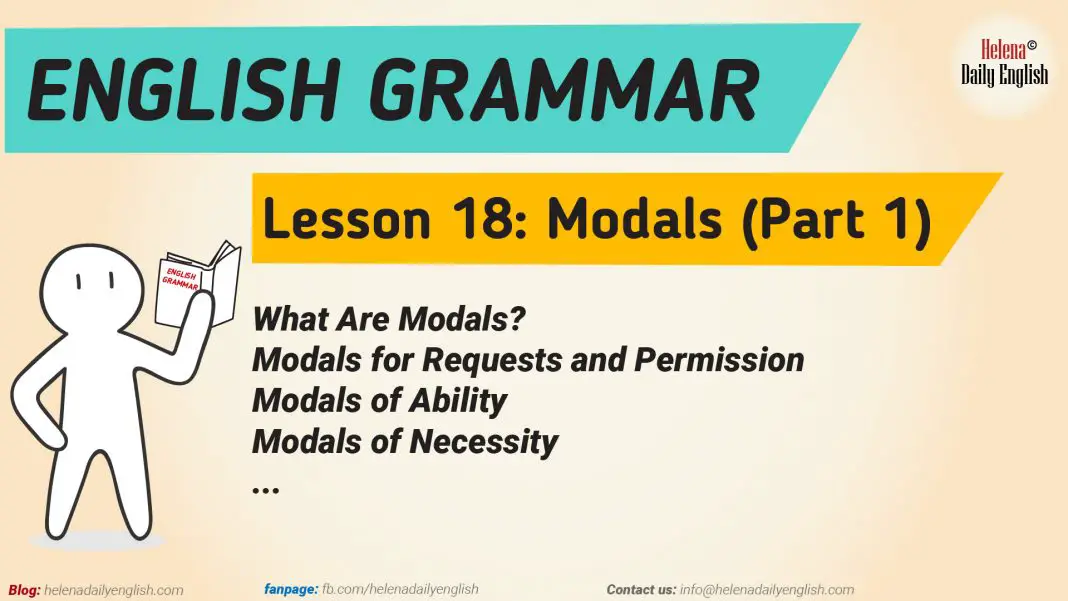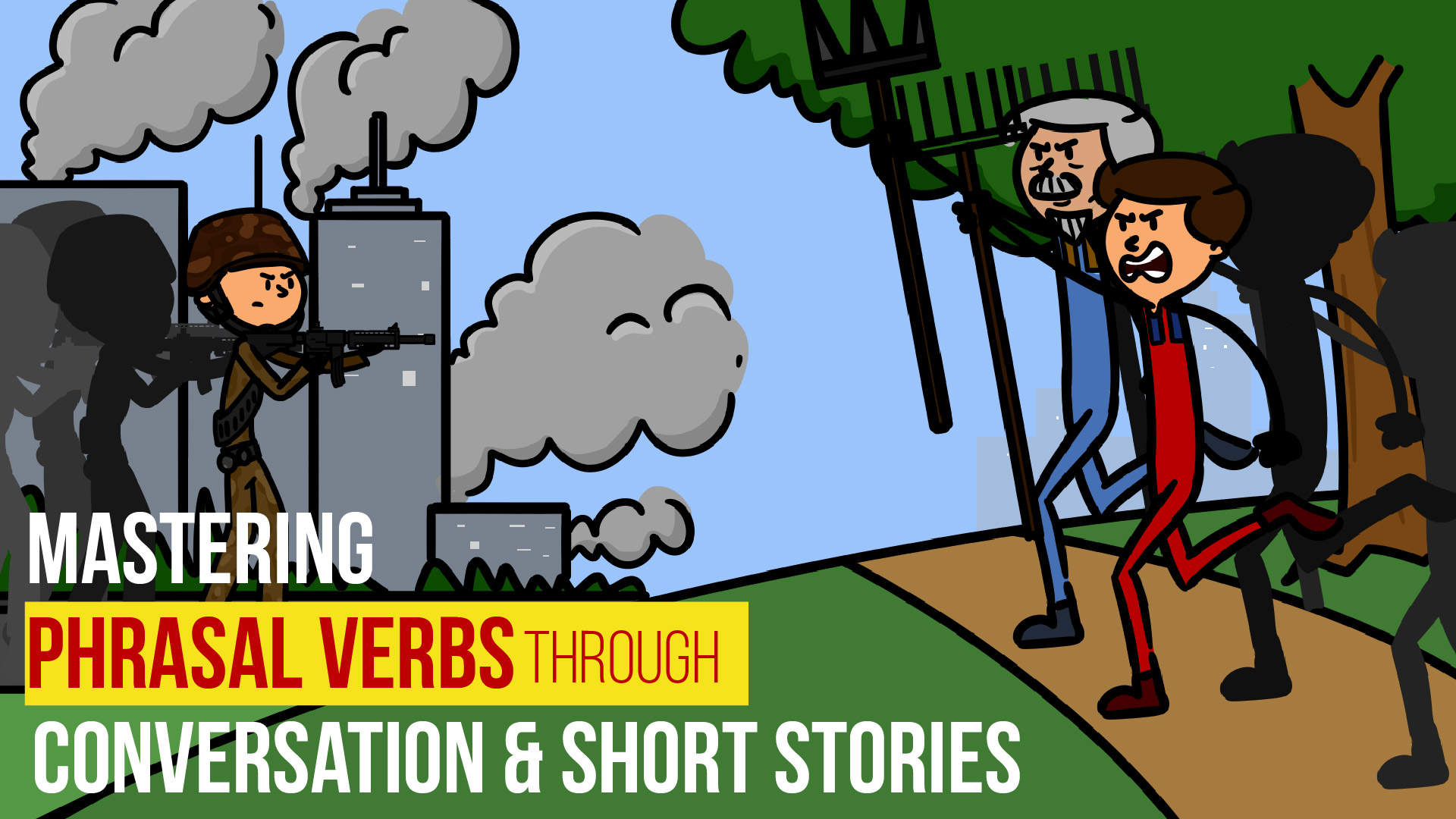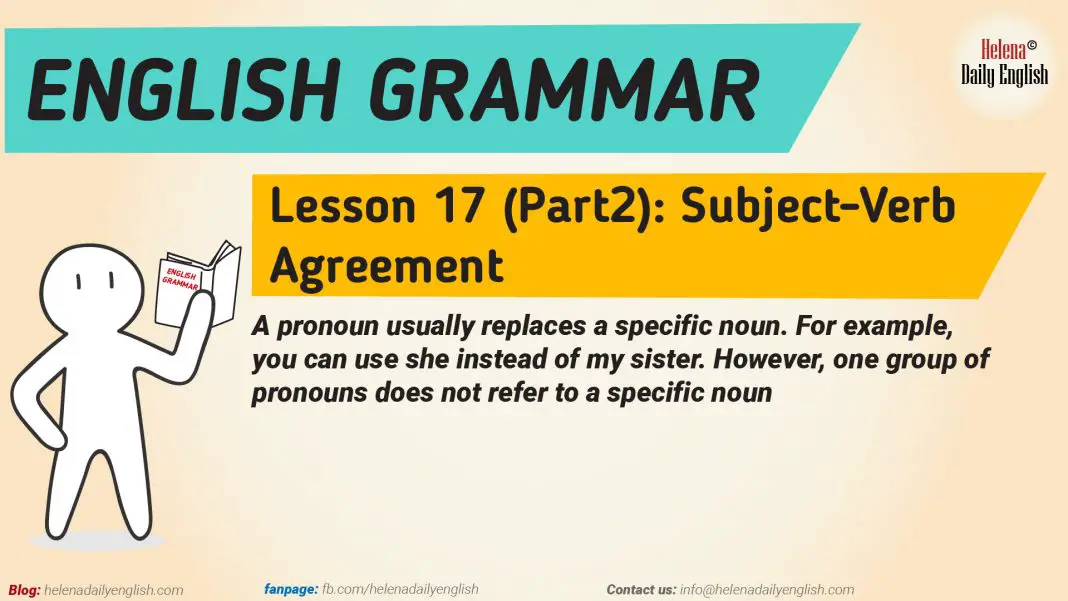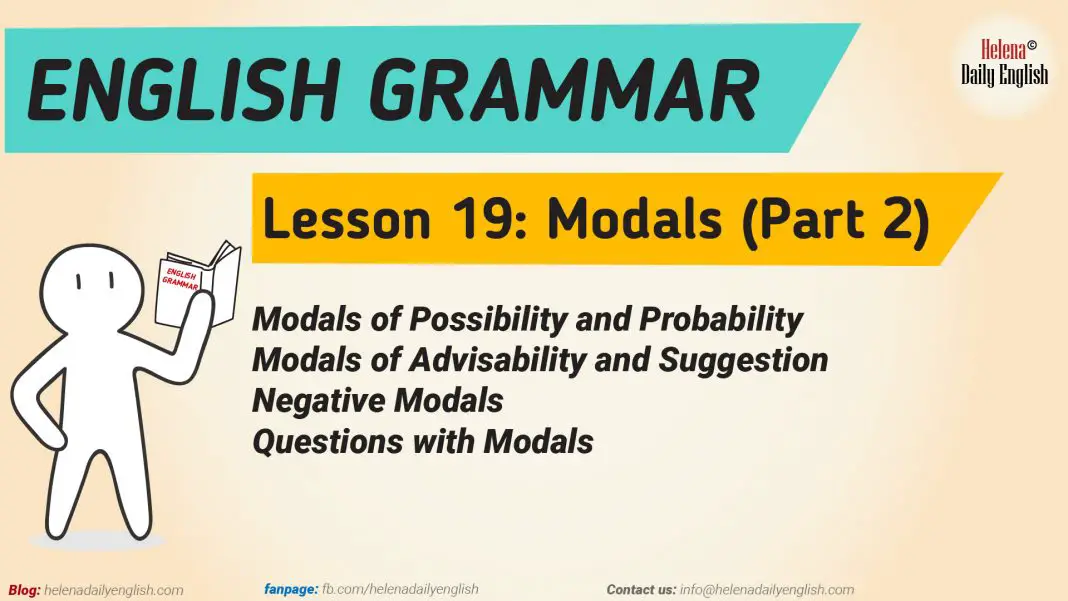Learn English Grammar: Lesson 18 (Part 1) – Modals
1. What Are Modals?
Modals are words that help main verbs by changing the meaning of the sentence. Modals are used to express:
| 1 | requests and permission | Can you stop at the grocery store on the way home? |
| 2 | ability | When I was a child, I could run very fast. |
| 3 | necessity | International students must have a student visa in the United States. |
| 4 | possibility and probability | We might go to the beach this weekend. |
| 5 | advisability and suggestion | The lecturer should speak more clearly. |
The most common modals are can, could, may, might, should, would, ought to, must, have to, and be able to. Remember that all modals are followed by the base form of the verb.
- I ride my bike to school. (This is something that I do every day.)
- I may ride my bike to school. (It is possible that I will ride my bike, or I may not. A second meaning is that I have permission [from my parents, for example] to ride my bike to school.)
- I can ride my bike to school. (I have the ability to ride.)
- I must ride my bike to school. (This is a necessity; I have no other transportation.)
Only use the base form of the verb after the modal.
- Incorrect: Margaret will
tograduate next year. - Correct: Margaret will graduate next year.
- Incorrect: The students should
tostudy - Correct: The students should study
Do not add -s to the base verb following a modal.
- Incorrect: He can use
sthe computer in the living room. - Correct: He can use the computer in the living room.
- Incorrect: Lucille would help
s, if she had the time. - Correct: Lucille would help if she had the time.
Some modals are combinations of more than one word. For these multiword modals, such as be able to and have to, you must change form according to the subject.
- My dog is able to jump over the fence in the backyard.
- We have to change the flat tire.
Do not use two one-word modals together in a sentence.
- Incorrect: You may
caneat at my house. - Correct: You may eat at my house, (permission – formal)
You can eat at my house, (permission – informal)
You can combine a one-word modal with a multiword modal.
- Ex: I may be able to help you tomorrow.
- Ex: We might have to leave the party early.
2. Modals for Requests and Permission
can could would may might
When you use modals to ask for something, you politely request, or ask for permission.
CAN informal
- Can I use your cell phone? (request)
- Joe can go next; I don’t mind waiting, (permission)
COULD informal
- Could you close the window? (request)
- You could park here, (permission)
WOULD polite request
- Would you like to go to the movies tonight? (request)
- Would you mind if I sit here? (request for permission)
MAY formal
- May I have your name, please? (request)
- You may have a seat, (permission)
MIGHT very formal (not commonly used)
- Might I offer you a piece of candy? (request; not used for permission)
Requests are usually questions. The modal comes first in a question.
- Can I have some?
Do not use two one-word modals together in a sentence.
- Incorrect: You may
canborrow my car. - Correct: You may borrow my car. (permission – formal)
- You can borrow my car. (permission – informal
3. Modals of Ability
can could (past ability) be able to
These modals express ability. All three modals are followed by the base form of the main verb. Only be able to changes for third person singular. Can and could do not add -s.
CAN ability
- Harry can run faster than Jim.
COULD ability, past tense
- Carmen could recite the alphabet as a young child.
BE ABLE TO have the ability to
- I am able to drive without my glasses, (present)
- Carol is able to drive without her glasses, (present – third person singular)
- We were not able to get a reservation, (past, negative)
- Peter was able to make the reservation, (past – third person singular)
Do not use two one-word modals in a sentence.
- Incorrect: I
can couldhelp you tomorrow. - Correct: I can help you tomorrow, (ability)
- Correct: I could help you tomorrow, (possibility – different meaning)
4. Modals of Necessity
must have to have got to need to
Use these modals when something is required or necessary:
MUST very strong
- Tomorrow is the final exam; everyone must attend class.
HAVE / HAS TO used more often than must
- Luis has to sell his motorcycle before he buys a boat.
HAVE / HAS GOT TO (very informal)
- Anna is staying home from the party because she has got to study.
NEED TO similar to HAVE / HAS TO
- I need to get a new pair of reading glasses.





